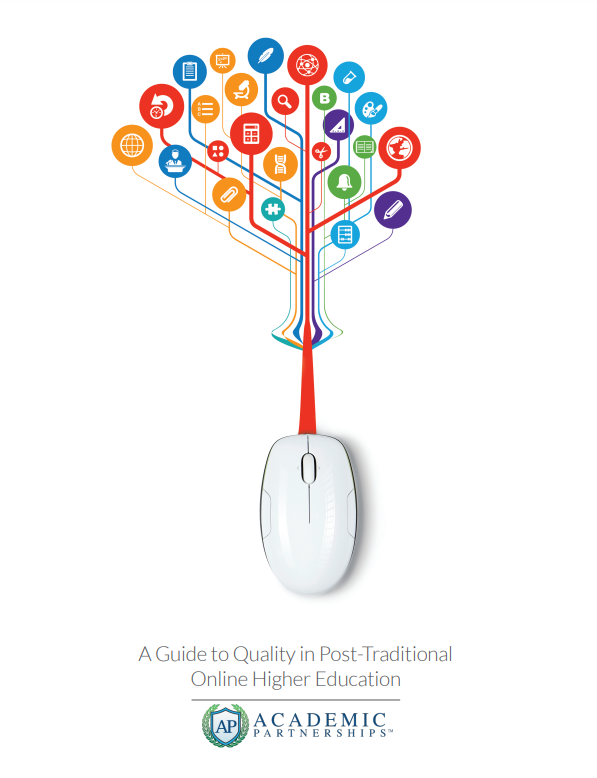In 2013 Academic Partnerships published, simultaneously in English and Chinese, a Guide to Quality in Online Learning. It was primarily concerned with online learning in formal higher education, i.e. with formally assessed courses and programmes leading to credentials. Recent years, however, have seen the multiplication of alternative or ‘post-traditional’ elements of higher education. These include new types of informal short courses and approaches to certification, growing openness in access to intellectual capital, and a lively diversification of teaching and learning methods. This new Guide aims to help individuals and institutions that are adopting post-traditional approaches by outlining key issues to consider when assuring the quality of their offerings.
The quality assurance of post-traditional higher education is not straightforward, because openness and flexibility are primary characteristics of these new approaches, whereas traditional approaches to quality assurance were designed for teaching and learning within more tightly structured frameworks. This Guide will grapple with this dilemma, drawing on emerging examples, after putting post-traditional higher education in context and exploring the various new manifestations of openness.
The emergence of these new forms of post-traditional higher education has been driven by various factors, including: global growth of unemployment, particularly among young people (which is raising demands for access to post-secondary education as jobs for unskilled and semi-skilled labour are declining); challenges facing mainstream higher education institutions as they experience diminishing financial support from governments but pressure to increase enrolment numbers; and the potential for innovative experimentation inherent in new forms of technology. Driven by the core value of education as a human right, ideas of emancipation of education for all, and growing disruption of higher education’s traditional business models, there is a steady move towards ‘openness’ that is driving innovation and has the potential to create a new paradigm in higher education.
Openness is an increasing factor in mainstream education, with value being attached to concepts such as open content, open data, and open educational resources (OER), along with notions of transparency and easy access to data and information. Additionally, education providers are increasingly leveraging the Internet, digital content, open licensing, and social networking to create new forms of education. Usually web-based or offered online, these initiatives aim to increase access to higher education and to make its curricula and awards more relevant to contemporary needs. At the same time, there is also growing recognition of the need for lifelong learning to keep pace with constantly changing global job markets and technologies, as well as to increase income levels, particularly in light of recent global economic disruptions. Education is becoming an integral activity in everyday lives rather than being confined to dedicated places and times, allowing people to develop their skills without always having to undergo formal study.

